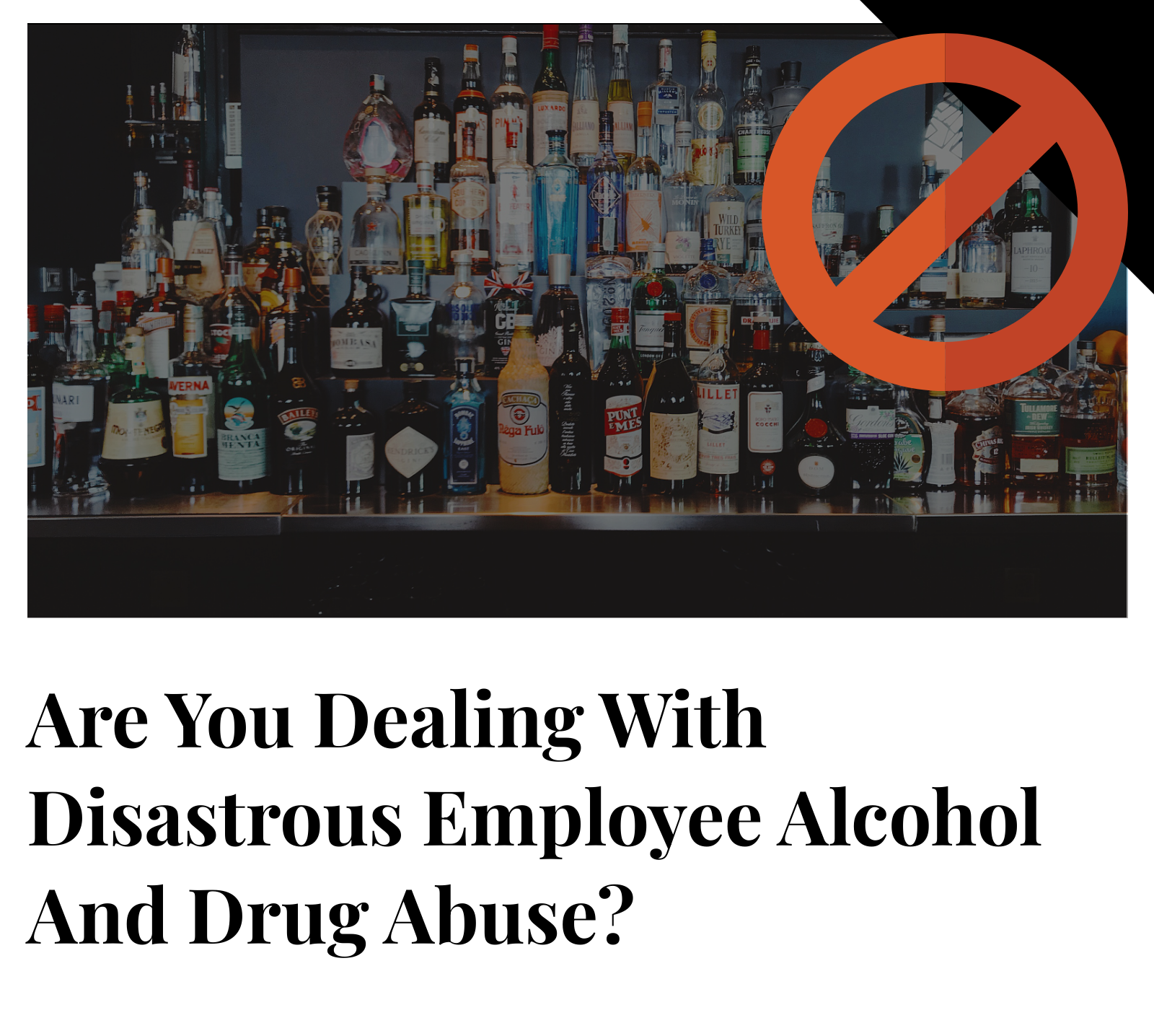
When a company finds itself lurching from crisis to crisis, rather than reactively scrabbling to rein in the consequences, there’s a lot to be said for hunting out the cause. Many employers remain oblivious to disastrous impacts of employee alcohol and drug abuse until the worst occurs.
The reality is that employees engaged in substance abuse pose a serious threat to their managers and co-workers—as well as the company at large—and every day that the problem is left unaddressed is a day lost to both the individual and the business. Resulting problems might include diminished performance or productivity, tardiness, absenteeism, runaway turnover, theft, compensation bills, and even physical danger to people and property.
While it might seem clear that the individual engaged in alcohol or drug abuse is at fault, allowing such conduct to fester can leave employers exposed to legal liability too, so a prompt workplace investigation is certainly the place to start. Culprits are likely to be covering their tracks, and substance abuse can be tricky to pin-point and document. This makes the surveillance and clue-finding skills of specialist corporate investigations services an ideal ally in this scenario. Better yet, a Corporate Culture Audit can help you stamp out the seeds of workplace misconduct before they sprout—but we’ll return to that momentarily.
Understanding the Complexities of Employee Drug and Alcohol Abuse
The impacts of drug and alcohol abuse are far reaching. So much so that, according to the data from the American Addiction Centers, the price tag lands at $740 billion annually in lost workplace productivity, healthcare expenses, and crime-related costs. The substances in question might be liquor, illegal drugs, prescription drugs, or over-the-counter medications. The abuse in question may be taking place during work hours or off the clock. Crucially, understanding how to identify the point at which you can take action is a necessity in terms of liability.
Clearly outlining rules in regard to consuming such substances during working hours in the employee handbook offers a well-lit legal path to disciplinary procedures if an employee is caught in the act. However, such cases are not always so cut and dry. For example, discrimination against those suffering from alcoholism is prohibited in many states by the Americans with Disabilities Act. This makes it vital to document a direct breach of policy, an impact to work performance, or a demonstrable threat to workplace safety, rather than simply a suspicion of intoxication.
Similarly, an employee is entirely entitled to take correctly prescribed medication—but an employer’s right to act comes into play when that medication makes them drowsy while operating machinery or driving a company vehicle. That said, state and federal laws in relation to disabilities may limit the options of an employer in these scenarios, perhaps even obliging the company to facilitate safe medication use of said employee, so expert guidance is always advisable.
Of course, if an employee’s workplace drug abuse extends to illegal substances, there are far less protections in place that might limit a company’s options. Depending on the circumstances—and crucially on the company’s pre-defined policies—actions taken might span from written warning to termination. However, be aware that your choices may have a knock-on affect on contractual obligations to customers or insurance policies. It is also vital to be mindful of social responsibility and federal regulations in regard to reporting crimes and referring those in need to assistance.
When It Comes to Alcohol and Drug Abuse, Prevention is Better Than Cure
No CEO or manager can know every detail of what employees are doing at all hours. But, what they can do is enact evidence-based prevention interventions aimed at mitigating workplace substance abuse, while fostering an environment of support and prosperity.
A more proactive form of corporate investigation is ideal as a preventative measure, and this is the Corporate Culture Audit. This serves as a health-check for your business, identifying conduct, policies, and patterns of behavior that may be undermining the company’s goals and ideals. Periodic audits can be complemented with supervisor training and education programs for employees. In certain cases, workplace drug testing may also be deemed appropriate. Ultimately, whatever program is opted for, its success can only be measured through an intelligent monitoring protocol.
If you would like to know more about the spectrum of corporate investigations services available in relation to drug and alcohol abuse—including specialist capacity ranging from surveillance to undercover operations—the team at Lauth Investigations is always on hand to advise. Learn more about the powerful rewards offered by Corporate Culture Audits, or get in touch today to discuss your unique investigative needs.



